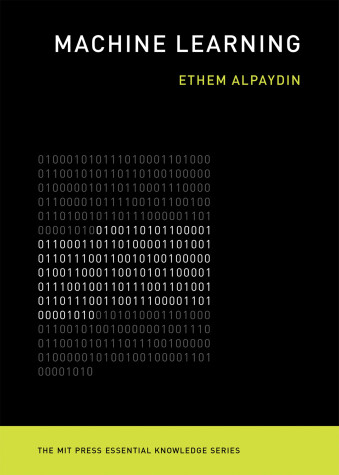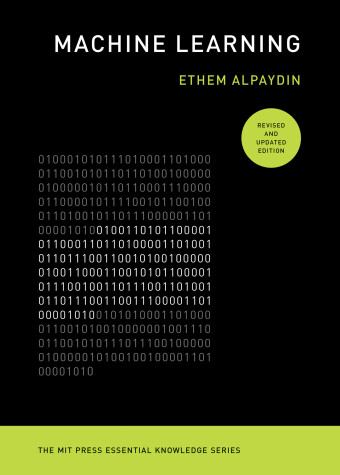MIT Press Essential Knowledge
2 total works
Today, machine learning underlies a range of applications we use every day, from product recommendations to voice recognition—as well as some we don't yet use everyday, including driverless cars. It is the basis of the new approach in computing where we do not write programs but collect data; the idea is to learn the algorithms for the tasks automatically from data. As computing devices grow more ubiquitous, a larger part of our lives and work is recorded digitally, and as “Big Data” has gotten bigger, the theory of machine learning—the foundation of efforts to process that data into knowledge—has also advanced. In this book, machine learning expert Ethem Alpaydin offers a concise overview of the subject for the general reader, describing its evolution, explaining important learning algorithms, and presenting example applications.
Alpaydin offers an account of how digital technology advanced from number-crunching mainframes to mobile devices, putting today's machine learning boom in context. He describes the basics of machine learning and some applications; the use of machine learning algorithms for pattern recognition; artificial neural networks inspired by the human brain; algorithms that learn associations between instances, with such applications as customer segmentation and learning recommendations; and reinforcement learning, when an autonomous agent learns act so as to maximize reward and minimize penalty. Alpaydin then considers some future directions for machine learning and the new field of “data science,” and discusses the ethical and legal implications for data privacy and security.
No in-depth knowledge of math or programming required!
Today, machine learning underlies a range of applications we use every day, from product recommendations to voice recognition—as well as some we don’t yet use every day, including driverless cars. It is the basis for a new approach to artificial intelligence that aims to program computers to use example data or past experience to solve a given problem. In this volume in the MIT Press Essential Knowledge series, Ethem Alpaydin offers a concise and accessible overview of “the new AI.” This expanded edition offers new material on such challenges facing machine learning as privacy, security, accountability, and bias.
Alpaydin explains that as Big Data has grown, the theory of machine learning—the foundation of efforts to process that data into knowledge—has also advanced. He covers:
• The evolution of machine learning
• Important learning algorithms and example applications
• Using machine learning algorithms for pattern recognition
• Artificial neural networks inspired by the human brain
• Algorithms that learn associations between instances
• Reinforcement learning
• Transparency, explainability, and fairness in machine learning
• The ethical and legal implicates of data-based decision making
A comprehensive introduction to machine learning, this book does not require any previous knowledge of mathematics or programming—making it accessible for everyday readers and easily adoptable for classroom syllabi.

